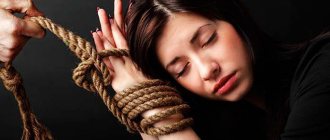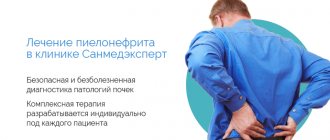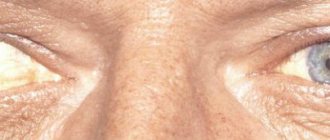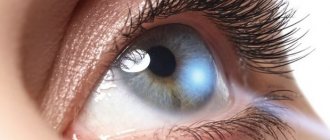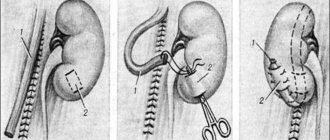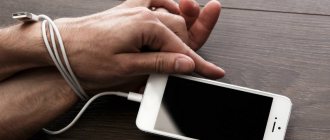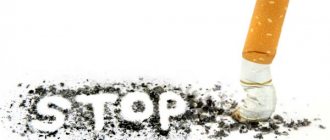Types of drug addiction
Pill addiction can present as mental or physical symptoms.
Mental dependence is the initial stage of pharmacy drug addiction. At this stage, a person feels an urgent need to take medications in order to avoid the so-called withdrawal syndrome - the return of unpleasant and painful sensations against which the action of the drug is directed, as well as the appearance of various ailments.
Physical is the next stage of drug dependence, which is accompanied by abstinence. When physically dependent on drugs, the addict suffers from “withdrawal”; when the person refuses the medication, the person’s well-being becomes obviously worse, symptoms appear in the form of irritability, aggressiveness, loss of appetite, instability of blood pressure, etc.
Treatment of drug dependence is necessary in both cases, since both stages are recognized by WHO as a type of drug addiction.
Official definition
The WHO (World Health Organization) Expert Committee, when the problem of drug addiction became global and large-scale, gave it a definition. Today, this phenomenon is understood as a mental and physical condition that is the result of the interaction between the human body and the drug. A characteristic feature of this condition is the presence of behavioral and other reactions that manifest themselves in a constant desire to take the drug constantly or periodically.
Doctors everywhere are sounding the alarm: today’s patients suffer not from one, but from a whole complex of diseases. Each specialist prescribes his own drugs, each of which has side effects - for example, effects on the kidneys or liver.
Important! If you feel that you can’t live without the drug, you should immediately consult a doctor - perhaps you are on the verge of drug addiction or have already fallen into it. Only a doctor will be able to adjust the treatment and take you away from the state of “we treat one thing and cripple another.”
So, if addiction to hormonal drugs occurs, the doctor can reduce the dose to a minimum, and in addition add other drugs. If we are talking about pills that are aimed at lowering blood pressure, then simply taking them cannot be done - you need to look for the cause of this condition, since over time the effect of taking them will decrease. Many people suffer from a love of laxatives. As a result, they simply cannot go to the toilet without these medications, and independent bowel movements become impossible. In this case, only a doctor can help, who will adjust the amount of medications taken and gradually eliminate their effect, simultaneously adjusting the diet and increasing physical activity, which always has a positive effect in these cases.
How drug addiction develops
Whether taking medications leads to drug dependence depends on the specifics of the medications taken and their effect on the human body. Not all types of medications are addictive; drug dependence most often occurs when taking pills that only combat the symptoms of various diseases. The first step in treating some diseases is to suppress symptoms and reduce pain. After long-term use of painkillers, it is necessary to continue treatment to eliminate the cause of the disease. But many patients, feeling an improvement in their condition, stop treatment. The disease remains, but the symptoms reappear after a while - again you need to take medications, and this is how addiction arises.
In more serious cases, the drugs used affect metabolism and other processes in the body. If you refuse these medications, significant disruptions occur in the body’s functioning. If the drugs are taken in large doses and for a long time, damage to the nervous system may occur; it is quite difficult to treat pharmaceutical drug addicts in this state.
Detoxification
Detoxification is the removal from the body of toxic substances and poisons that accumulate due to the constant action of medications.
In the Verimed drug treatment clinic, drug therapy is used for this purpose:
- Intravenous administration of substances that promote the removal of toxins and poisons that normalize electrolyte balance (saline, glucose, rheosorbilact, plasma substitutes, etc.).
- Vitamin and potassium-magnesium complexes.
- Sedatives to reduce withdrawal symptoms.
- In rare cases and if indicated - psychotropic.
The choice of drugs and selection of dosages is carried out by experienced doctors, depending on the individual needs of each patient.
Symptoms of drug addiction
If, after reducing the dose of a medicine or completely stopping its use, a person experiences various kinds of ailments, this indicates a developed addiction. Symptoms of drug addiction include:
- general malaise;
- blood pressure surges;
- increased excitability;
- reduced reaction speed;
- joint pain and headaches;
- vegetative crises.
Some symptoms appear in a person immediately after stopping regular medication, so it is possible to seek help from doctors in a timely manner.
What should you do to avoid falling into a state of drug addiction?
We have already given some advice above, but we will repeat them again:
- Do not take medications based on television and other types of advertising. Remember that the drugs are prescribed by the doctor.
- If addiction occurs against the background of doctor’s prescriptions, then it is worth contacting him again to adjust the treatment.
- Look for the cause of such a condition, which requires taking medications, rather than working with the investigation. And if the doctor does not share your attitude to the problem, then it makes sense to look for another doctor.
It seems like nothing new, but sometimes these easy and simple rules are forgotten. We wish you to be healthy and never become dependent on even the simplest and easiest drugs.
What drugs are you addicted to?
- Antidepressants and neuroleptics, for example Melipramine, Pentalgin. If a person does not try to eradicate the cause of his disease, but only takes medication, then after stopping it the pain returns, apathy is observed or, conversely, aggressiveness, pressure surges.
- Tranquilizers, psychotropic tablets and painkillers, for example Sibazon, Gidazepam, Phenazepam. Large doses of these drugs cause irreversible processes in the brain and disable the central nervous system.
How to get rid of drug addiction
In each specific case, doctors at the Emerkon clinic develop an individual treatment program for drug addiction, focusing on the specifics of the drug, timing of its use, etc., so treatment always begins with a conversation with a narcologist-psychiatrist. Psychotherapy is required, as well as droppers to remove from the body the substances that make up the drug that have caused addiction.
It is not always possible to abruptly stop taking a drug; withdrawal syndrome can have very dangerous consequences. The patient gives up the medicine gradually - the dose is reduced or the drug is replaced with a similar one, but with a lower dosage. In case of long-term addiction and severe complications, rehabilitation may be required after completion of treatment, which you or your loved ones can also undergo in our clinic.
Treatment of drug addiction in Krasnodar, Karasun district, st. Fabrichnaya 5 – clinic “Emerkon”
Types of treatment
In the treatment of addiction, there is no one universal method that will give a guaranteed result. The healing process is very individual. And we can safely say that in any effective program the addicted person will have to take a very active part in every stage. This means that effective treatment presupposes the desire of the addict to be cured.
Drug treatment
Medication-assisted treatment for drug addiction and alcoholism includes detoxification and medication therapy.
Detoxification allows you to quickly cleanse the body and remove all toxic breakdown products of alcohol and drugs.
- Find out more about classic detoxification
- Learn more about ultra-rapid detoxification
- Find out more about withdrawal symptoms
Drug therapy helps to go through the substance withdrawal syndrome (abstinence) painlessly. Medications taken during withdrawal are reduced until the patient is no longer physically dependent on the drug or alcohol.
- Find out more about maintenance therapy
These types can be used both together and separately. Medication treatment begins recovery for people with moderate to severe addiction. You can receive medication treatment in drug treatment clinics or drug treatment clinics in your city.
- Learn more about drug treatment for drug addiction
Treatment in hospital
Inpatient addiction treatment is very common in Russia and the world. It is difficult for an addicted person to stop on their own. Inpatient rehabilitation centers allow you to pull the patient out of their usual lifestyle and break the endless cycle of use. Structured residential programs offer treatment for all aspects of addiction. During inpatient rehabilitation, patients live in a substance-free facility. They receive 24-hour psychotherapeutic support.
Inpatient rehabilitation is the best way for those who cannot stop using in society, as well as for those who acquired mental and behavioral disorders during use.
- Find out more about inpatient drug addiction treatment
Ambulatory treatment
Outpatient treatment for alcoholism and drug addiction is another comprehensive type of addiction treatment. Outpatient programs offer the same methods of psychological support and psychotherapy as inpatient rehabilitation, but the patient lives at home during treatment. He has the opportunity to go to work, take care of his family, and attend treatment sessions in his free time. It is important to remember that this method of treatment does not isolate the addict from the usual environment in which he used. Same places, same people, same circumstances. You will have to cultivate a high level of awareness in yourself in order to remain clean for a long time.
The outpatient type of treatment is suitable for people with a mild form of the disease and for people who have just completed inpatient treatment and are socializing.
- Learn more about outpatient drug addiction treatment
Houses of social adaptation (resocialization)
Treatment in social adaptation homes occurs after a course of inpatient rehabilitation. A kind of bridge between isolation and society. This time is given to patients to consolidate the knowledge gained during rehabilitation and apply it in practice in society. Addicts live together, attend outpatient treatment or self-help groups; in such homes, a rigid schedule is also maintained, but there is more freedom. The patient learns to relive difficulties and take responsibility gradually, in a favorable therapeutic atmosphere.
- Read about resocialization of addicts
Treatment based on faith (religion)
The idea of spirituality and religiosity helps many people. Rehabilitation centers and communities provide both paid and free addiction treatment services using faith-based methods. In these programs, participants read and study relevant literature and ask spiritual forces for solutions to their problems.
- Learn more about faith-based healing
Motivational Talk (Intervention)
The intervention is aimed at getting the addict to admit his problem. This type of treatment is carried out by professionals. It often happens that relatives see the problem, but the patient does not want to notice that his addiction is making him and his relatives suffer. A specialist is brought in who constructively tries to explain to the patient that a problem exists. The dialogue consists of leading questions, the denial of which leads to a stupid situation. The addict himself comes to the conclusion that a treatment program is necessary.
- Find out more about the intervention
Cost of services
| Name of service | Price |
| Consultation with a specialist by phone | for free |
| Consultation with a narcologist-psychiatrist in the clinic | for free |
| Development of an individual treatment plan | 1500 rub. |
| Intervention | from 3000 rub. |
| Transfer to the center | from 3000 rub. |
| Hospital | from 6000 rub. per day |
| Coding | from 3000 rub. |
| Rehabilitation | from 1666 rub. per day |
| Drug testing (DTA) | 2800 rub. |
| Working with codependents | first visit is free |
Our specialists will help you
Gornostaev Nikolay Sergeevich
Specialization:
psychologist
Experience:
20 years
City:
Krasnodar
Bogdasaryan Gor Armenovich
Specialization:
psychologist, addictionologist
Experience:
7 years
City:
Krasnodar
Savkin Ivan Nikolaevich
Specialization:
addictologist
Experience:
7 years
City:
Krasnodar
Sokolov Nikolay Petrovich
Specialization:
addictologist
Experience:
12 years
City:
Krasnodar
Prokhorov Andrey Mikhailovich
Specialization:
administration
Experience:
City:
Krasnodar
Prokhorova Svetlana Mikhailovna
Specialization:
administration
Experience:
City:
Krasnodar
Goncharenko Nadezhda Mikhailovna
Specialization:
spiritual practitioner
Experience:
15 years
City:
Krasnodar
More about specialists
